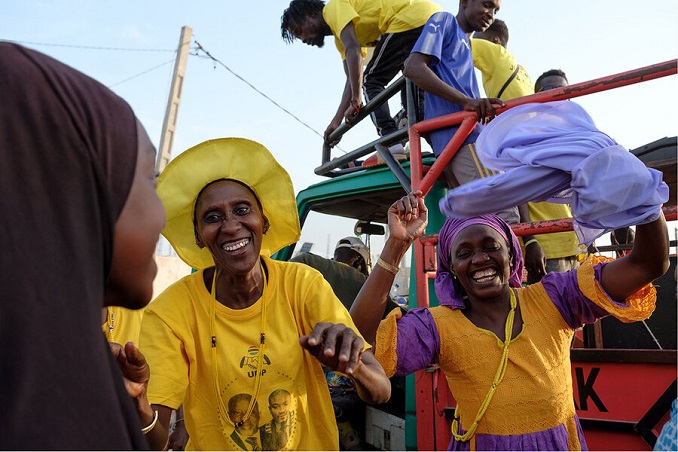Gambian citizens are voting for legislators in parliamentary elections that are expected to enhance President Adama Barrow’s grip on power following his re-election last year. On Saturday, voters in the West African state will renew the 58 seats in the unicameral National Assembly for a five-year term. The single-round vote will help elect 53 parliamentarians, while Barrow, who was elected to a second five-year term in December, will pick the remaining five, including the parliament’s president.
Polling booths are open from 8:00 a.m. (0800 GMT) to 5:00 p.m. The campaigning ended on Thursday evening, and the results will be announced on Sunday. A primary job for the new legislature will be to vote on a new constitution, which is considered necessary by The Gambia’s international allies in order to promote democracy and limit the president’s powers. Barrow’s surprising victory in the 2016 presidential election over now-exiled dictator Yahya Jammeh ended a 20-year dictatorship plagued by state atrocities ranging from assassinations and forced disappearances to rape and torture.
He promised to make constitutional changes by the end of his tenure, but the outgoing parliament rejected a drafted constitution that would restrict the president to two terms in September 2020. The provision’s retroactive character, which would have banned Barrow from standing for president again in 2026, was opposed by Barrow’s allies. The president’s National People’s Party, which was formed in 2020 following the disintegration of the coalition that brought Barrow to power, is attempting to gain a parliamentary majority.
Related Posts
The United Democratic Party, which currently controls the chamber, is led by Ousainou Darboe, who ran against Barrow in the presidential election in December but lost. The opposition and a civil society representative have accused Barrow of using state resources to illegally help his party’s candidates during a national campaign tour. The purpose of the tour was to gather information on the public’s requirements.
The Gambia is continental Africa’s smallest country, a two-million-strong English-speaking enclave surrounded by Senegal. According to the United Nations, it is one of the world’s 20 least developed countries. Due to the country’s high illiteracy rate, voters insert a marble into a short pipe that feeds into a canister bearing the colours and a picture of each candidate—a method established due to the country’s unique voting procedure.

